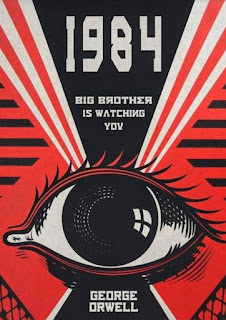Over the last 70 years or so the human race has taken a tremendous leap forward in nearly every aspect. Many of these improvements to society have come from the fast improvement and development of electronic technology and the dawn of the informational age, or digital age. Since the dawn of the digital age, the United States has seen life expectancy increase from 68 to 78, and globally from 30 to 72 years. In addition, quality of life has also seen a large improvement in the US and abroad. It is no question that there are numerous benefits that have come from, and continue to come from improvements in technology.
The medical industry has been greatly impacted by the use and development of technology. From the creation of the first CT scanners and MRI machines in the 60’s and 70’s to wearable EKG devices and tele-health conferences, technology continues to revolutionize the care and treatment of millions of people across the globe. Everyday new techniques and technologies are used to make life saving discoveries that would never have been realized even 10 years before.
The creation of the internet might be one of the most important innovations of the digital age. The internet has created a web of connection across the globe. Today almost every electronic device that exists connects to the internet. The internet has lead to a true global marketplace of ideas, innovations, and commerce. By 2024 global e-commerce is expected to reach a staggering 21.8 percent of retail sales from 18 percent in 2020. The global connection that is the internet can also have some pretty dark downsides. Social media has been found to have increased the rates of depression and suicides in teens and young adults; and places like the dark web are havens for criminal activity like drug and sex trafficking, child pornography, and other horrible things.
Technology has also completely altered the way information and ideas are shared around the world. From the creation of the radio in 1890, and its use as entertainment in 1920, to the creation of television, and now the internet and social media, communication has become easier faster and more reliable. Technology has allowed people from all over the globe to communicate thoughts and ideas almost instantaneously. This in turn helps to foster the innovation of new technologies. Unfortunately, the ability of anyone being able to communicate their thoughts and ideas, and potentially be able to reach millions of people can lead to the production and use of misinformation, or fake news, to not only shape what issues a society is thinking about but also how they think about it. Corporations like facebook have openly admitted to be able to do this and pose a great threat to our country. Private censorship by these companies has proved to be a large issue as they are not held to the same standards because constitutional law, and the protection of free speech, does not apply to private entities.
Many advancements in technology, like the internet, have stemmed from military research and experiments. Especially in the ever-changing world that is today, national security is a constant concern, and due to this new technologies are constantly produced, new softwares are constantly developed in an effort to help keep the United States safe. However, as is often the case, actions made in the pursuit of security can easily violate our civil rights, upending the American principle of freedom. After all the debate between the theories of John Locke and Carl Marx is freedom VS security, and has been the cause for war and insurmountable bloodshed throughout history. If the cliché is true and history truly is destine to repeat itself, the events surrounding Edward Snowden and the NSA are a pretty good indicator of just how far the US government is willing to go. The Atrocities of the NSA and the US government were exposed by Edward Snowden in 2013. He showed the American public that the government was willing to go against American ideas and violate civil liberties by spying on every citizen of the globe who was connected to the internet. This scandal unfolded almost nine years ago, and if the government had the ability to spy on peoples calls, texts, emails, social medias, and more, who knows what they are capable of doing now with the help of massive tech corporations.
The evolution of technology has brought many conveniences to the lives of millions. But has technology really made our lives better? As a society, have we given technology a place in our lives that it hasn’t earned?









